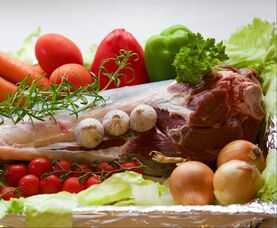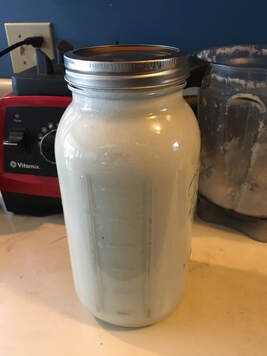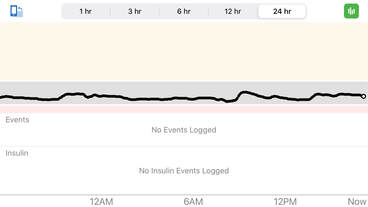 In October 2020 I began a very successful experiment with the ketogenic diet to control my reactive hypoglycemia. I wrote this post in April 2021 outlining the initial phases of this experiment. Since then, a lot has changed, so I wanted to give an update on how it's working for me now. Even though I had been "keto" for a year and a half, I had been pretty loosey-goosey with my carb limits. As long as I stuck under 60g carbs/day I could see that I was producing a little bit of ketones (using a ketone meter) and this kept my glucose relatively stable. After a few months of keto, my A1c dropped dramatically from 6.2 down to 5.2. I'm holding steady now at around 5.3. But because I was a little lax with my carbs, especially between the end of 2021 and the beginning of 2022, I would regularly get hypoglycemic crashes once every couple of weeks which I required a rescue remedy (a half of a cube of maple sugar). So recently I've gotten much more strict with my carb intake, and the results have been excellent. My ketones are in optimal range almost all the time, my energy and digestion is great, and my blood sugar is in better control than ever before.
0 Comments
 Homemade coconut milk. Homemade coconut milk. Hey friends. I wanted to write quickly about something I've been making regularly as a better alternative to animal milk and commercially-made plant milks: homemade coconut milk. I've been animal-milk-free for about nine years, and have switch between different plant milk alternatives, mostly hemp milk. However, there are several issues with these commercially available alternative milks: sustainability (where and how is the plant material grown, the energy and water used for that growth and processing, the waste involved in the packaging, and so on); hidden ingredients; not enough fat (for a CFer); and price. The best solution I've found to all these is to make your own milk, specifically from canned coconut milk. Yes, there are sustainability problems for a person in a northern climate to use a milk made from a tropical plant grown thousands of miles away, and the fossil fuels that transport depends on. There's no denying that. So a better alternative would be something like sunflower seeds, which grow in my bioregion. However, that requires some infrastructure that I don't have. Using canned coconut milk is a quick and easy solution and solves the issue of waste from milk containers. In addition, this milk alternative is very high in fat, which is great for CFers and others who need more nutrition. So here I'll give directions how to make it in addition to the nutrition facts.  Stable blood sugar is a beautiful thing! Stable blood sugar is a beautiful thing! For the last ten years or so I've struggled with reactive hypoglycemia related to CFRD (cystic fibrosis-related diabetes). In the last couple of years it has become very difficult to manage. Reactive hypoglycemia is a condition where the blood sugar crashes 1-3 hours after a meal containing carbohydrates, leading to distressing hypoglycemia symptoms such as shakiness, anxiety, weakness, brain fog, fatigue, tachycardia, and in severe cases, unconsciousness or even coma. Reactive hypoglycemia is more common in CFRD than many CF-specialists realize. Despite avoiding simple carbohydrates and adhering to a Paleo-ish diet for many years, my reactive hypoglycemia has only gotten worse. That is, until I started a ketogenic diet in October of 2020. I've made a remarkable improvement in my blood sugar control and I'd like to report my success in detail here.  In this article, originally published in AromaCulture Magazine in July, I discuss herbal and dietary support for CF children and adults. I discuss digestion, respiratory disease, liver support, and modulation of CFTR sodium chloride channels by natural means. Cystic fibrosis is an autosomal recessive genetic disease that leads to the malfunctioning of several organ systems but most especially impacts the lungs, sinuses, and digestion. It is the most common autosomal recessive genetic disorder (meaning that each parent must be a carrier of the genetic mutation) in people of Western European decent. There are approximately 30,000 people living with cystic fibrosis (CF) in the United States, and more than 70,000 people worldwide. |
Author
Mica (they/he) is a clinical herbalist, nutritionist, researcher, and writer living in Abenaki territory (Vermont). *************************** Disclaimer: The content of this website and blog is for educational purposes only and should not be considered medical advice. The information provided here is not intended to replace medical care. Archives
July 2024
Categories
All
|
Photo from BotanikGuide
 RSS Feed
RSS Feed
